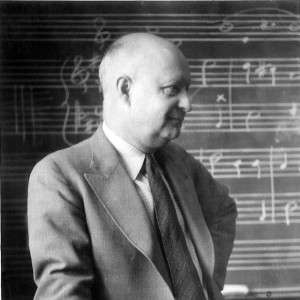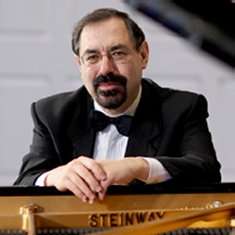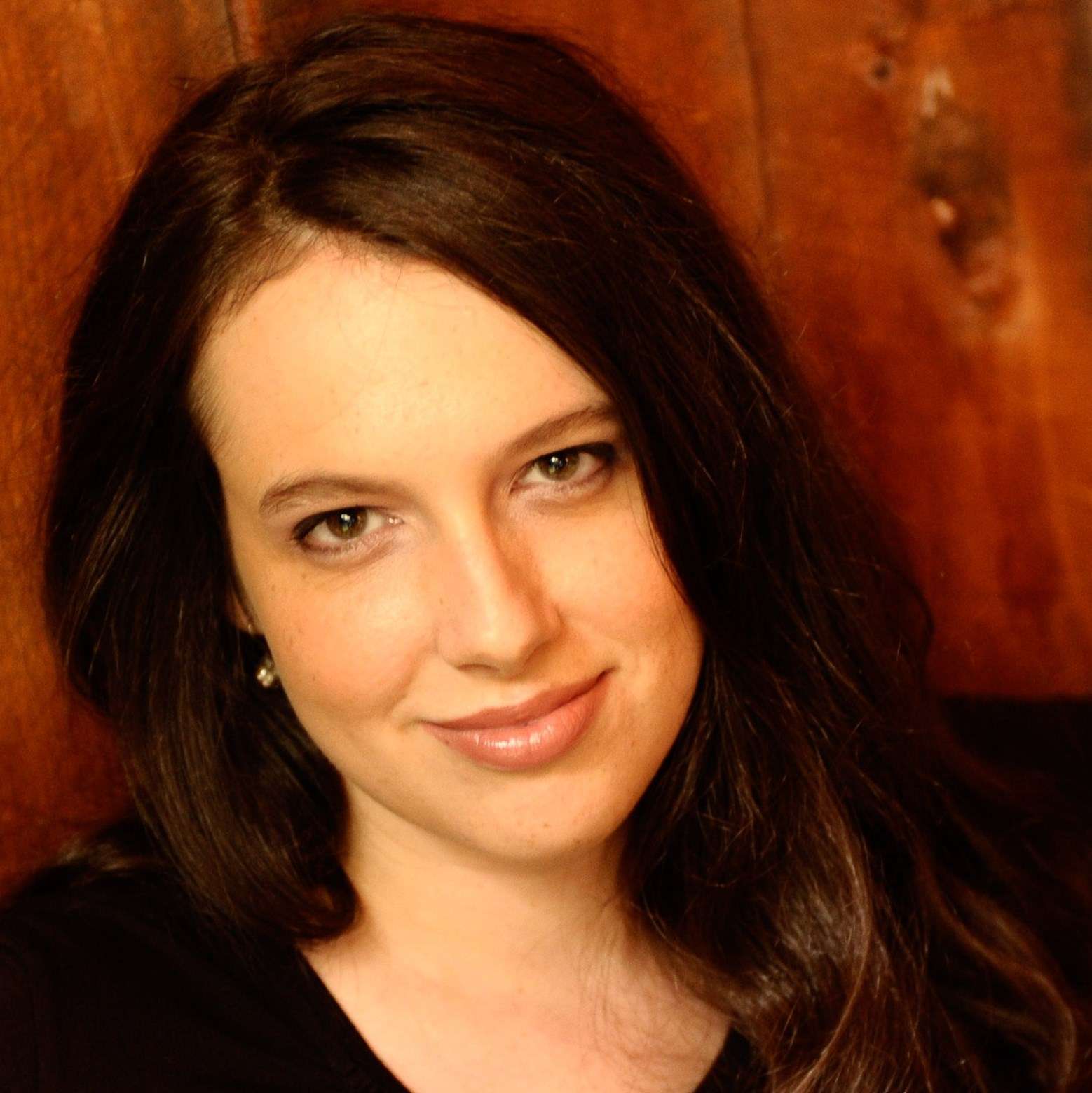|
Back
Paul Hindemith’s Less-Than-Merry Pranks New York
Weill Recital Hall, Carnegie Hall
04/28/2013 -
Yale in New York: “Hindemith: Master & Prankster”
Paul Hindemith: Sonata for viola and piano, Op. 11, No. 4 – Kammermusik No. 2, Op. 36, No. 2 – Serenades: A Small Cantata on Romantic Texts, Op. 35 (#) – Minimax – Overture to “The Flying Dutchman” as Played at Sight by a Second-Rate Concert Orchestra at the Village Well at 7 O’Clock in the Morning
Claudia Rosenthal (Soprano), Boris Berman (Piano), Timothy Gocklin (Oboe), Ettore Causa, Dashiel Nesbitt (#) (Viola), Jurrian van der Zanden (Cello), Jasper String Quartet: J Freivogel, Sae Chonabayasi (Violins), Sam Quintal (Viola), Rachel Henderson Freivogel (Cello)
Graduate students and alumni of the Yale School of Music, Julian Pellicano (Conductor), David Shifrin (Artistic Director)

P. Hindemith at Yale (© musicyale’s photostream)
To revise Beecham on Wagner, a night of Hindemith music isn’t half as bad as it sounds.
That isn’t fair, although the prospect of two hours of Hindemith–even the alleged “prankster” Hindemith–was daunting. He composed volumes of music, all of it contrapuntally harmonically clear. (And if the clarity isn’t apparent, he wrote and taught about it extensively.) At the same time, the emotional strength is reluctant to show its face, the Hindemith inspiration shunted aside for his brilliant technical prowess.
For this listener, Hindemith straddles several benchmarks in 20th Century music, while sitting on none of them. Nothing, not even the lighter music, is warm, but at the same time he misses the mathematical games of his atonal colleagues. His brilliance in instrumentation is never questioned, but he paints it for a musical logic, not for intensity or exhilaration. I am not averse to Germanic seriousness (Webern is always fascinating), but the Hindemith seriousness is less challenging than worthy of serious respect.
Yet students–from Germany to Turkey to Yale University, where he taught–revered him. And the Yale School of Music gave him all due honors last night in the beautiful Weill Concert Hall.

B. Berman (© Naxos Records)
The performers were associated with Yale as students or teachers. But one, Boris Berman, while teaching, is simultaneously famed as recitalist and writer. Mr. Berman, in fact, opened and closed the concert with two opposing pictures of Hindemith’s music .
The first showed off Hindemith’s instrument of choice, the viola, in a Sonata, played with deft and colorful fingerwork by Ettore Causa. The piece began with an introduction that could have come from Brahms, but was soon overshadowed by the deftness of a series of variations in the last two movements that were hardly Brahmsian. In fact, the composer almost hid them amidst the playing of piano and viola, and while never uninteresting, one began to lose one’s way in the thicket of notes.
This was not true in the final piece, the Chamber Music No. 2, an absolutely delightful work, where Mr Berman was the total star. This was counterpoint with a purpose, a Bach-like concerto, where a Yale small orchestra was conducted by Julian Pellicano with all the zest one needed.
The title of the concert was “Hindemith: Master and Prankster”. In my humble opinion, his pranks were all too self-conscious. In Weimar Germany, where Grosz, Weill, Krenek and even Schoenberg’s cabaret songs, showed a wicked artistic wit, Hindemith was parodying military marches, village bands and bad salon waltzes through microtonal “errors” and rhythmic absurdities.
Mozart had exhausted the subject with one piece, the “Musical Joke”. Like Hindemith, he added dissonance to his own village musicians, but he also parodied form, bad melodies and the players themselves. Hindemith’s cumbersome title Overture to “The Flying Dutchman” as Played at Sight by a Second-Rate Concert Orchestra at the Village Well at 7 O’Clock in the Morning, was played cutely by the Jasper String Quartet. They also played–with equal cuteness–a very long Minimax. I had heard portions before, which were delicious bagatelles. Listening to six movements was not wearying, but hardly worthy of the time.
The humor, in fact, came from the titles, wisely not translated, but with a Satie-like surrealism. “The Two Funny Crap-Finches”, for example, was played by two violins in the highest piccolo range.

C. Rosenthal (© Wolftrapopera.org)
For two reasons, the most wholly satisfactory music were Serenades, for soprano, oboe, viola and cello. Each of the six songs and two instrumental interludes were unique, they were spontaneous (the texts being highly romantic), and had an edgy actual feeling which I rarely heard in the other works.
Hindemith was not attempting either forced humor or stylistic fireworks. The poetry was more than sensual, it was almost prurient, and it was set with equal fervor.
The second reason was that soprano Claudia Rosenthal was as fervent as the poetry with a voice that was dramatic, beautifully enunciated and had strength in every register. She gave the emotional poems all the virility, all the imagery and all the unforced love which they required. It was a stunning performance, and one feels that even the stoic Mr. Hindemith might have shed a tear in appreciation.
Harry Rolnick
|